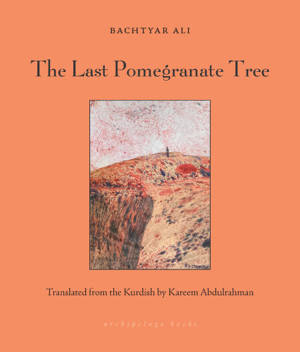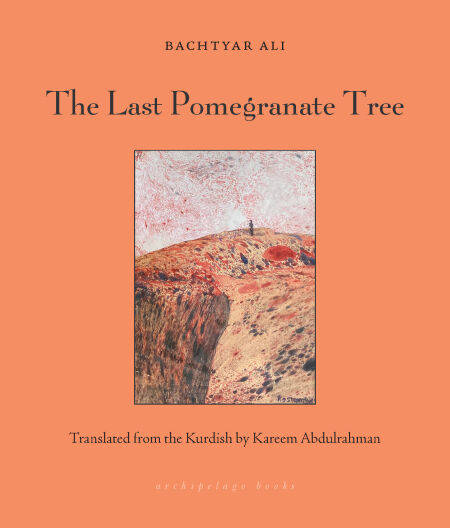
- Afhalen na 1 uur in een winkel met voorraad
- Gratis thuislevering in België vanaf € 30
- Ruim aanbod met 7 miljoen producten
- Afhalen na 1 uur in een winkel met voorraad
- Gratis thuislevering in België vanaf € 30
- Ruim aanbod met 7 miljoen producten
Zoeken
Omschrijving
An extraordinary chronicle of war and an occult story of love between a father and his son from one of Iraq’s most celebrated contemporary writers
“Whenever he told lies, the birds would fly away. It had been that way since he was a child. Whenever he told a lie, something strange would happen.”
So begins Bachtyar Ali’s The Last Pomegranate, a phantasmagoric warren of fact, fabrication, and mystical allegory, set in the aftermath of Saddam Hussein’s rule and Iraq’s Kurdish conflict.
Muzafar-i Subhdam, a peshmerga fighter, has spent the last twenty-one years imprisoned in a desert yearning for his son, Saryas, who was only a few days old when Muzafar was captured. Upon his release, Muzafar begins a frantic search, only to learn that Saryas was one of three identical boys who became enmeshed in each other’s lives as war mutilated the region.
An inlet to the recesses of a terrifying historical moment, and a philosophical journey of formidable depths, The Last Pomegranate interrogates the origins and reverberations of atrocity. It also probes, with a graceful intelligence, unforgettable acts of mercy.
“Whenever he told lies, the birds would fly away. It had been that way since he was a child. Whenever he told a lie, something strange would happen.”
So begins Bachtyar Ali’s The Last Pomegranate, a phantasmagoric warren of fact, fabrication, and mystical allegory, set in the aftermath of Saddam Hussein’s rule and Iraq’s Kurdish conflict.
Muzafar-i Subhdam, a peshmerga fighter, has spent the last twenty-one years imprisoned in a desert yearning for his son, Saryas, who was only a few days old when Muzafar was captured. Upon his release, Muzafar begins a frantic search, only to learn that Saryas was one of three identical boys who became enmeshed in each other’s lives as war mutilated the region.
An inlet to the recesses of a terrifying historical moment, and a philosophical journey of formidable depths, The Last Pomegranate interrogates the origins and reverberations of atrocity. It also probes, with a graceful intelligence, unforgettable acts of mercy.
Specificaties
Betrokkenen
- Auteur(s):
- Vertaler(s):
- Uitgeverij:
Inhoud
- Aantal bladzijden:
- 321
- Taal:
- Engels
Eigenschappen
- Productcode (EAN):
- 9781953861412
- Verschijningsdatum:
- 23/01/2023
- Uitvoering:
- E-book
- Beveiligd met:
- Adobe DRM
- Formaat:
- ePub

Alleen bij Standaard Boekhandel
+ 17 punten op je klantenkaart van Standaard Boekhandel
Beoordelingen
We publiceren alleen reviews die voldoen aan de voorwaarden voor reviews. Bekijk onze voorwaarden voor reviews.







